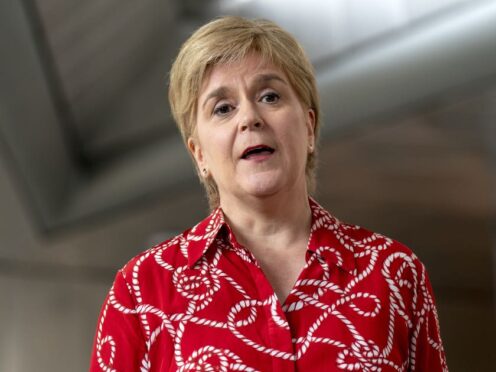
Nicola Sturgeon has said she finds herself “veering against” voting for the Bill to legalise assisted dying as she wrestles with the moral complexity of the issue.
Liam McArthur’s Assisted Dying for Terminally Ill Adults (Scotland) Bill was published last week, becoming the third attempt at changing the law on the issue since devolution.
The Liberal Democrat MSP has said he is “confident” the Scottish Parliament will back his legislation when it comes to a vote, adding “robust safeguards” are included in the Bill.
MSPs are expected to have a free vote on the matter, meaning the political parties will not whip them one way or the other.
Ms Sturgeon, the MSP for Glasgow Southside, set out her thoughts in an article for the Glasgow Evening Times newspaper.
She said she has “rarely been as conflicted on any issue as I am on this”, noting she had previously voted against assisted dying.

The former first minister said she is considering the issue afresh and has been “deeply moved” by the accounts of terminally ill people who wish to die at a time of their own choosing.
Ms Sturgeon wrote: “Despite my expectations, the more deeply I think about the different issues involved, the more I find myself veering away from a vote in favour, not towards it.
“I worry that even with the best of intentions and the most carefully worded legislation, it will be impossible to properly guarantee that no-one at the end of their life will feel a degree of pressure, a sense that it might be better for others for them not be here – even if their loved ones try to persuade them otherwise.”
The SNP MSP said she also worries the proposals could one day be extended.
She said: “If we normalise assisted dying – if we come to associate dignity at the end of life with choosing to die, rather than being supported to live in as much peace and comfort as possible – then we will, as a society, lose focus on the palliative and end-of-life care and support that is necessary to help people, even in the worst of circumstances, to live with dignity.”
Mr McArthur’s Bill would give people with an advanced terminal illness the option of requesting an assisted death.
They would need to have the mental capacity to make such a request, which would have to be made voluntarily and approved by two doctors.

Only people who have lived in Scotland for at least a year would be allowed to make such a request, which would be followed by a mandatory 14-day “reflection period”.
Responding to Ms Sturgeon’s comments, Mr McArthur said: “I appreciate the issues that Nicola Sturgeon raises and I hope that I will have a chance to meet with her and other MSPs who are not yet convinced to back my Bill in a bid to allay their concerns.
“The recent UK Parliament inquiry into assisted dying noted that there was no evidence of palliative and end-of-life care deteriorating in quality or provision following the introduction of assisted dying in jurisdictions around the world. Indeed, in many instances improvements have gone hand in hand.
“Our current laws on assisted dying are failing too many terminally ill Scots and despite the best efforts of palliative care, dying people too often face traumatic deaths that harm both them and those they leave behind.
“I would encourage my MSP colleagues to consider carefully the detail of this Bill and the safeguards that it puts in place.
“In turn, I hope this leads them to back my proposals to give terminally ill adults the choice they need and one that an overwhelming majority of Scots support.”

Enjoy the convenience of having The Sunday Post delivered as a digital ePaper straight to your smartphone, tablet or computer.
Subscribe for only £5.49 a month and enjoy all the benefits of the printed paper as a digital replica.
Subscribe